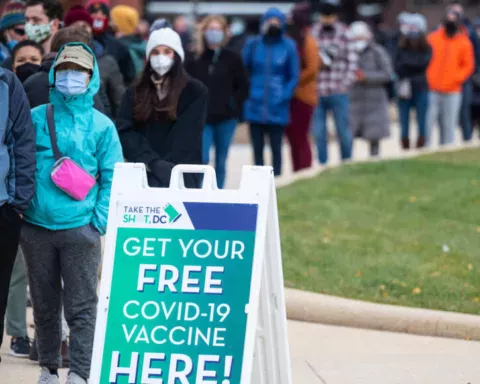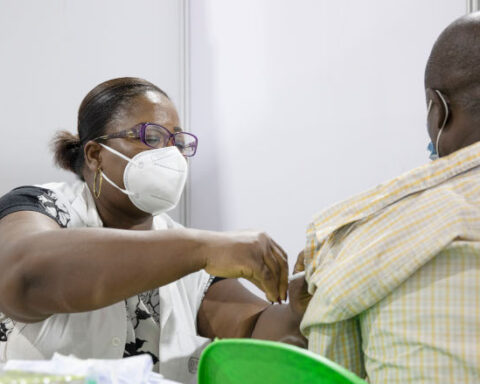- On December 1, 2020, ACIP made recommendations on who should be offered COVID-19 vaccination in the initial phase of the U.S. COVID-19 vaccination program while there is limited vaccine supply.
- On December 11, 2020, the U.S. Food and Drug Administration issued an Emergency Use Authorization for use of the Pfizer-BioNTech COVID-19 vaccineexternal icon in persons aged 16 years and older for the prevention of COVID-19.
- On December 13, 2020, the Advisory Committee on Immunization Practices (ACIP) issued recommendations for the use of Pfizer-BioNTech’s COVID-19 vaccine for the prevention of COVID-19.
ACIP will meet again after FDA authorizes or approves other COVID-19 vaccines and will make recommendations for the use of individual vaccines at that time.ACIP’s role
COVID-19 Vaccination Recommendations to Date
December 1, 2020
When a COVID-19 vaccine is authorized by FDA and recommended by ACIP, vaccination in the initial phase of the COVID-19 vaccination program (Phase 1a) should be offered to both 1) healthcare personnel and 2) residents of long-term care facilities.
Healthcare personnel are defined as paid and unpaid people serving in health care settings who have the potential for direct or indirect exposure to patients or infectious materials. Long-term care facility residents are defined as adults who reside in facilities that provide a variety of services, including medical and personal care, to persons who are unable to live independently.
Since the pandemic began, ACIP has been holding special meetings to review U.S. data on COVID-19 and the vaccines in development to help prevent it. Before making recommendations, ACIP plans to review all available clinical trial information, including descriptions of
- Who is receiving each candidate vaccine (age, race, ethnicity, underlying medical conditions)
- How different groups respond to the vaccine
- Side effects experienced
Goals for vaccination if supply is limited
ACIP set the following goals for recommending which groups should receive COVID-19 vaccines if supply is limited:
- Decrease death and serious disease as much as possible
- Preserve functioning of society
- Reduce the extra burden the disease is having on people already facing disparities
- Increase the chance for everyone to enjoy health and well-being
Ethical principles
ACIP identified four ethical principles to guide their decision-making process if supply is limited:
- Maximize benefits and minimize harms — Respect and care for people using the best available data to promote public health and minimize death and severe illness.
- Mitigate health inequities — Reduce health disparities in the burden of COVID-19 disease and death, and make sure everyone has the opportunity to be as healthy as possible.
- Promote justice — Treat affected groups, populations, and communities fairly. Remove unfair, unjust, and avoidable barriers to COVID-19 vaccination.
- Promote transparency — Make a decision that is clear, understandable, and open for review. Allow and seek public participation in the creation and review of the decision processes.
Groups considered for early vaccination if supply is limited
Before making an official recommendation, ACIP considered four groups to possibly recommend for early COVID-19 vaccination if supply is limited:
- Healthcare personnel
- Workers in essential and critical industries
- People at high risk for severe COVID-19 illness due to underlying medical conditions
- People 65 years and older
Healthcare personnel continue to be on the front line of the nation’s fight against this deadly pandemic. By providing care to those who are or might be infected with the virus that causes COVID-19, many healthcare personnel have a high risk of being exposed to and getting sick with COVID-19. Learn more about the importance of vaccination for healthcare personnel.
Workers in essential and critical industries are considered part of America’s critical infrastructure, as defined by the Cybersecurity & Infrastructure Security Agencyexternal icon. Current data show that many of these workers are at increased risk for getting COVID-19. Early vaccine access is critical not only to protect them but also to maintain the essential services they provide U.S. communities.
People with certain underlying medical conditions are at increased risk for severe COVID-19 illness, regardless of their age. Severe illness means that the person with COVID-19 may require hospitalization, intensive care, or a ventilator to help them breathe, or that they may even die. Early vaccine access is critical to ensuring the health and safety of this population that is disproportionately affected by COVID-19.
Among adults, the risk for severe illness and death from COVID-19 increases with age, with older adults at highest risk. Early vaccine access is critical to help protect this population that is disproportionately affected by COVID-19.






